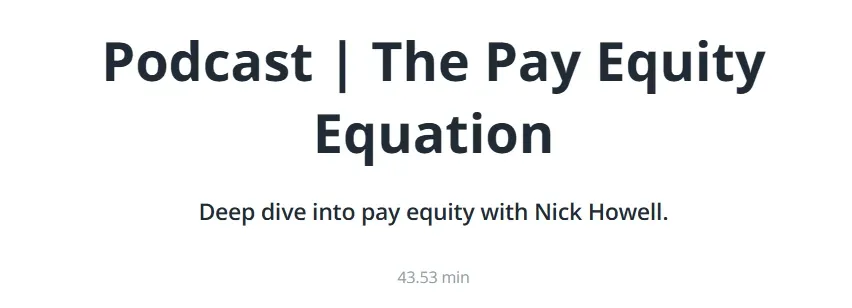
HR technology is becoming an essential part of business strategy. In the U.S. alone, employers have invested over $5 trillion in HR tech, and 74% of companies plan to increase their budgets. Moreover, 80% of companies on Forbes’ Global 2,000 list are expected to use algorithmic managers for hiring, firing, and training. As we look ahead to 2025, HR technology will continue to drive efficiency, enhance employee experience, and shape workforce management.
This blog will explore the latest HR tech trends, their benefits, and the challenges HR leaders must tackle.

HR technology refers to software, platforms, and tools used by human resources teams to manage and automate various HR functions. These tools support tasks like recruitment, payroll, performance management, employee engagement, and benefits administration.
HR technology offers a wide range of benefits that enhance both organizational efficiency and employee satisfaction. These are:
These benefits highlight how HR technology enhances strategic decision-making across organizations. As the world of HR technology continues to advance, it's important to understand the key trends shaping the future. Let’s explore the top HR technology trends that will define 2025 and beyond.
Suggested Read: Top 5 Pave Alternatives and Competitors in 2025

There are several emerging trends that are driven by a combination of AI, automation, cloud systems, and data analytics, enabling HR departments to improve efficiency, enhance employee experience, and drive better business outcomes.
Here are the key trends that will shape HR technology in 2025:
AI and machine learning are becoming integral to HR functions, automating repetitive tasks, enhancing decision-making, and improving the accuracy of predictions. These technologies help HR teams manage talent more effectively and predict employee needs before they arise.
Here's how AI and machine learning will transform HR in 2025:
Employee experience platforms are becoming central to managing the employee lifecycle, ensuring a smooth and engaging journey from recruitment to exit. These platforms integrate various HR tools to create a cohesive and personalized experience for every employee. Here's how they will evolve in 2025:
People analytics allows HR professionals to make more informed decisions by using data to optimize recruitment, performance management, and overall workforce planning. This trend is all about utilizing data to drive better outcomes for both employees and organizations. Here’s how people analytics will impact HR in 2025:
Cloud-based HR solutions will continue to dominate in 2025 due to their flexibility, scalability, and ability to simplify HR functions across an organization. These systems ensure that HR data is accessible anywhere, making it easier for teams to collaborate and make informed decisions. Here’s how cloud-based systems will evolve:
Automation in HR processes will continue to increase in 2025, enabling HR professionals to focus more on strategy and less on routine tasks. Automated workflows will reduce administrative duties and improve the accuracy of HR operations. Here’s how automation will reshape HR:
In 2025, VR and AR will become more prevalent in training and employee development. These immersive technologies will offer new ways for employees to learn skills and gain experience, all while engaging them in a more interactive environment. Here's how VR and AR will impact HR:
As remote and hybrid work become the norm, HR technology will increasingly focus on supporting distributed teams and maintaining productivity. HR tools will help monitor performance, ensure the well-being of employees, and promote cooperation in a remote setting. Here's how remote work technologies will evolve:
Blockchain is poised to reinvent HR by ensuring the secure, transparent, and efficient management of payroll, contracts, and employee credentials. The technology’s ability to enhance data security and improve efficiency will be crucial for HR functions in 2025. Here’s how blockchain will shape HR:
HR technology will play a pivotal role in advancing diversity, equity, and inclusion (DEI) initiatives in 2025. AI and other tools will help reduce bias, track progress, and create more inclusive workplace environments. Here’s how DEI technologies will evolve:
As technology continues to develop, HR leaders will face several challenges in adapting to these changes. These issues include managing employee expectations and maintaining organizational alignment in addition to technology adoption. Let’s explore some of the most pressing challenges HR leaders will need to tackle in 2025.

Suggested Podcast: The Pay Equity Equation
Learn more about pay equity with Nick Howell in this 43-minute episode. Learn about the challenges in reducing pay gaps and discover practical strategies to achieve pay equity in today's market. Listen to the full episode for actionable insights.

Managing technological integration while ensuring employee engagement and cultivating a unified company culture is just the tip of the iceberg. Here are some of the most critical challenges HR leaders will need to tackle in 2025:
The risk of data breaches and privacy violations grows. Ensuring the security of sensitive information, such as compensation details and personal records, will be a top priority for HR leaders. Additionally, compliance with data protection regulations will require continuous monitoring and adaptation of HR systems.
While new HR technologies promise to increase efficiency and improve decision-making, integrating them into existing systems can be a challenge. HR leaders will need to ensure smooth transitions, minimize disruptions, and manage employee training to effectively employ these tools. Resistance to change from employees or leadership can also slow down adoption, requiring HR leaders to drive change management efforts effectively.
HR leaders will be tasked with handling the complexities of managing a dispersed workforce. This includes ensuring consistent communication, tracking performance, maintaining company culture, and supporting employee well-being. Balancing flexibility with productivity will be key to keeping remote teams engaged and aligned with organizational goals.
While HR technologies can help track and manage employee performance, they also risk creating a disconnect between employees and the organization. HR leaders will need to ensure that technology doesn’t replace the human touch, especially when it comes to building relationships. Keeping employees motivated and connected in a digital-first environment will be a continuous challenge.
As AI and machine learning tools are increasingly used in recruitment, performance management, and employee development, HR leaders must ensure that these technologies are free from bias. AI systems can inadvertently perpetuate existing biases, leading to unfair decision-making. HR leaders will need to ensure that AI tools are transparent, fair, and aligned with diversity, equity, and inclusion (DEI) initiatives.
The rapid pace of technological change means that employees’ skills are becoming outdated faster than ever. HR leaders will need to focus on upskilling and reskilling initiatives to ensure that their workforce remains competitive. Creating learning and development programs that help employees adapt to new tools and roles will be necessary for maintaining a skilled and future-ready workforce.
While HR leaders face significant challenges in adapting to the changing landscape, using the right tools is essential to overcoming these obstacles. CompUp equips organizations with the necessary features to stay ahead of HR technology trends
Suggested Read: Top PayScale Alternatives and Competitors in 2025

Staying ahead of emerging trends is essential for companies aiming to remain competitive and enhance employee satisfaction. CompUp is designed to help organizations adapt effortlessly to these HR tech trends in 2025, providing innovative features that align with the latest advancements in the field.
CompUp provides company budgets, performance ratings, and reward philosophies to calculate increments. This allows companies to base their compensation decisions on objective, real-time data. This approach aligns perfectly with the growing trend of using People Analytics for informed HR decisions.
With the rise of automation in HR, CompUp replaces manual, spreadsheet-driven processes with automated workflows. This reduces errors, improves efficiency, and ensures consistency in managing compensation and performance. Automating tasks such as budget distribution and performance evaluations aligns with the trend of automating routine HR tasks to free up HR professionals for strategic work.
The future of HR tech lies in connected systems that share data effortlessly. CompUp integrates with your existing HR platforms (e.g., Bamboo HR, Lattice, Culture Amp), centralizing compensation data into one unified platform. This ensures easy information flow and aligns with the growing trend of integrating disparate HR technologies for a cohesive, efficient HR ecosystem.
As companies increasingly prioritize pay equity and transparency, CompUp offers tools to communicate compensation details clearly to employees. The Pay Equity feature identifies and addresses pay gaps, ensuring that compensation practices are fair and consistent across roles, demographics, and locations.
In line with the trend toward hyper-personalization in HR, CompUp allows organizations to offer a personalized compensation experience. Through the Rewards Statement feature, employees can easily view the full scope of their compensation package, including base salary, bonuses, and benefits, tailored to their specific needs, location, and structure.
These features position CompUp as a critical tool for adapting to the evolving HR technology landscape in 2025, driving efficiency, transparency, and fairness in compensation management.
HR technology is set to revolutionize how organizations manage their workforce, drive efficiency, and enhance the employee experience. From AI-driven decision-making and cloud-based solutions to remote work tools and enhanced diversity initiatives, technology will drive HR transformation.
CompUp is a powerful tool that helps businesses adapt to these trends with features like data-driven compensation, pay transparency, HR process automation, and quick integration. Its compensation management and pay equity tools allow HR teams to make informed, fair decisions.
Ready to take your HR strategy to the next level? Request a free demo of CompUp today and see how its cutting-edge features can improve your compensation management and align with the latest HR technology trends.
1. What is the HR tech trend in 2025?
In 2025, HR technology will focus on AI-powered automation, people analytics, and personalized employee experiences. Trends will include cloud-based systems, advanced performance tracking, pay equity tools, and seamless integration of DEI and remote work technologies.
2. What is the HR forecast for 2025?
The HR forecast for 2025 predicts a shift toward data-driven decision-making, automation of routine tasks, and a greater emphasis on diversity, equity, and inclusion (DEI). HR will adopt more flexible work models and personalized employee experiences.
3. What is the future of HR technology?
The future of HR technology will involve greater automation, AI integration, and data analytics. Expect personalized employee journeys, advanced DEI solutions, and more immersive training through VR/AR, all enhancing productivity, engagement, and decision-making in HR operations.
4. What is the HR planning for 2025?
HR planning for 2025 will focus on adapting to remote work trends, using AI for recruitment and performance, and encouraging inclusivity. It will also prioritize employee well-being, skills development, and technology to enhance operational efficiency and engagement.

Customer Success Manager
Driven with the aim of becoming a valuable subject matter expert in the world of Total Rewards to be able to deliver exceptional customer experiences.
Revolutionizing Pay Strategies: Don't Miss Our Latest Blogs on Compensation Benchmarking